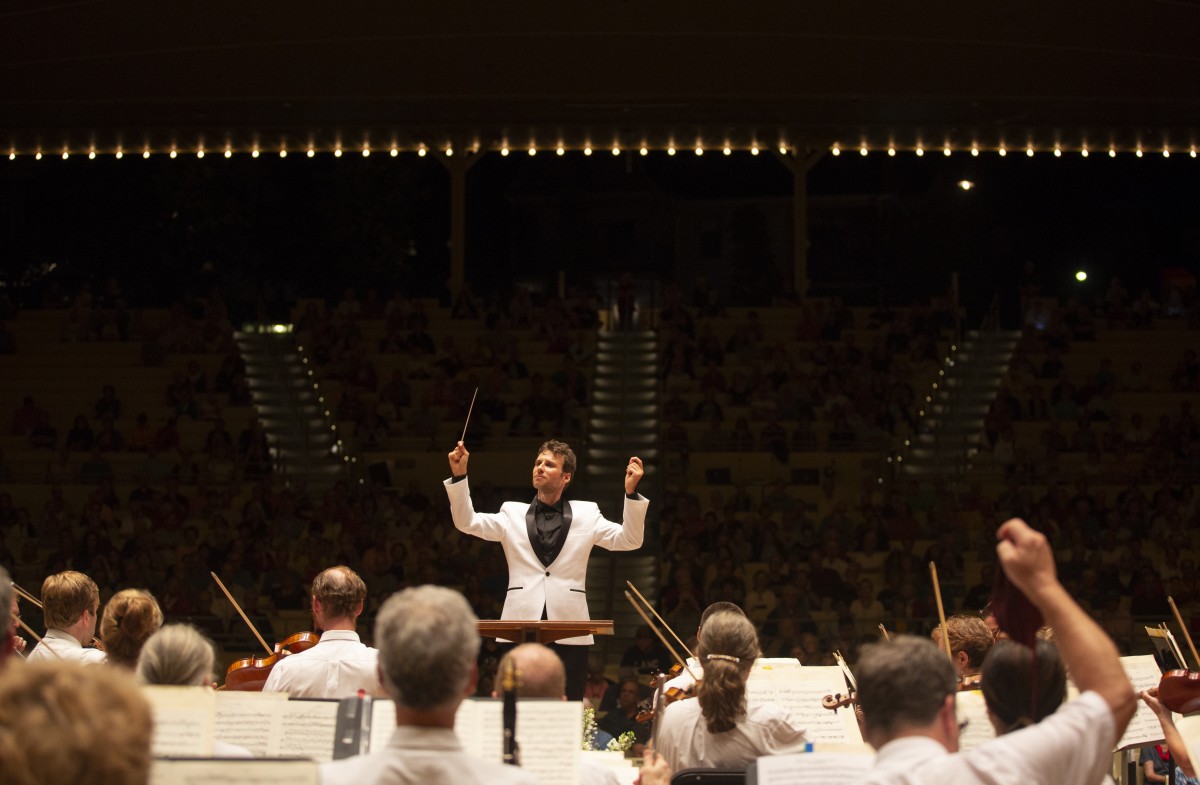
Beethoven’s fourth symphony is the least known of all his symphonies, according to musicologist Robert Greenberg. But even the least of Beethoven ranks among the best in history.
“If any of Beethoven’s contemporaries had written this symphony, it would be considered that composer’s masterwork,” Greenberg wrote in his 1996 book The Symphonies of Beethoven, “and that composer would be remembered forever for this symphony, and this symphony would be played as an example of that composer’s great work.
At 8:15 p.m. Thursday, July 26, in the Amphitheater, the Chautauqua Symphony Orchestra will conclude its three-concert Beethoven Festival with a performance of Beethoven’s Symphony No. 4 in B-flat major, Barber’s First Essay for Orchestra and Mozart’s Sinfonia Concertante for Violin, Viola, and Orchestra. Timothy Muffitt, the music director of the Music School Festival Orchestra, will be conducting, and CSO members Simon Lapointe and Christopher Fischer will be featured as soloists in the Mozart.
Symphony No. 4 may be the least popular of Beethoven’s nine, but Muffitt specifically wanted to program it for this concert because it exhibits a unique side of Beethoven’s musical palette.
The fourth, he said, is overtly joyous and filled with wit, which contrasts the serious nature of the music on the previous installment of this Beethoven Festival. He also said that sections of the fourth symphony — like the clarinet solo in the second movement — explore atmospheres and colors that aren’t usually associated with the early 19th century.
Beethoven’s fourth symphony, although less popular now, was influential in its day. According to musicologist Mark Ferraguto, the fourth particularly affected Berlioz, Mendelssohn and Schumann, all giants of the era directly following Beethoven.
“There are not more than a handful of composers in all of Western music that had more of an impact on those who would follow than Beethoven did,” Muffitt said. “Aside from just presenting the music because it’s extraordinary music, I think we always want to be reminded of what a towering figure he was in the evolution of Western music.”
This final concert of the Beethoven Festival is also somewhat of a transition to non-Beethoven repertoire: the pieces by Barber and Mozart aren’t tied in to the Beethoven theme in any particular way, according to Muffitt.
Barber’s First Essay for Orchestra is a great opportunity for the audience to hear one of the best offerings of American Romanticism, and the Sinfonia Concertante displays an unusually expressive aspect of Mozart, Muffitt said.
The Sinfonia Concertante features Fischer, the CSO’s principal violist, and Lapointe, the CSO’s assistant principal second violinist, as soloists. This concert is an opportunity for the orchestra to showcase two of its own members, as soloists are usually visiting artists.
One might expect Lapointe to be somewhat nervous — it’s commonly said that it’s most nerve-wracking to perform in front of one’s colleagues — but Lapointe said he feels supported by his peers in the CSO, sans judgment.
“I’m just so excited to have the chance to perform with my friends and colleagues in the CSO,” Lapointe. “We always say, you know, when the (CSO) musicians address the audience at the concerts, how proud we are to be members of the orchestra here, and that’s because it’s true.”




